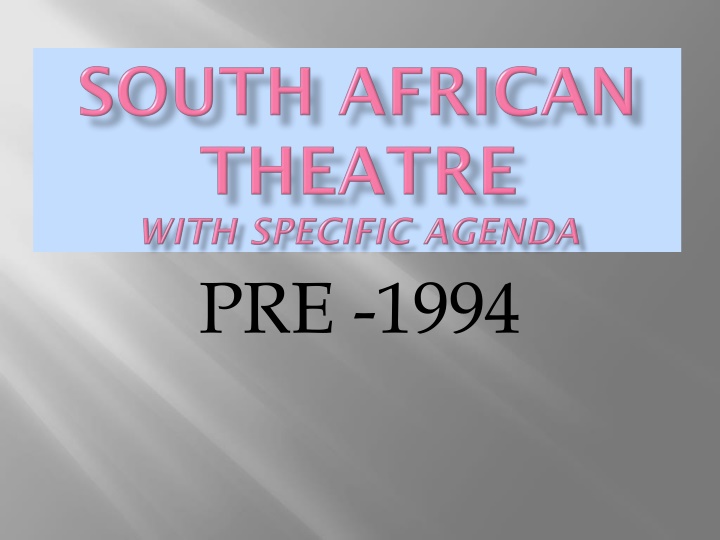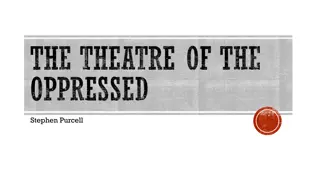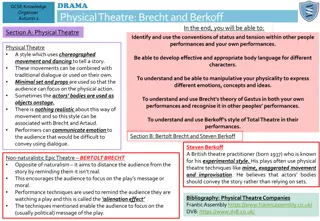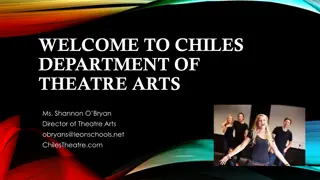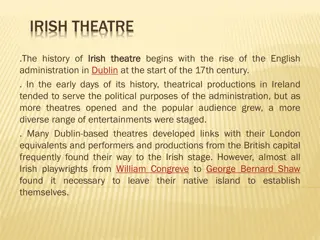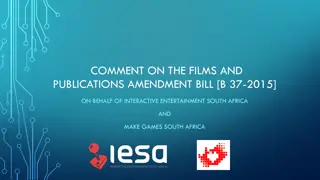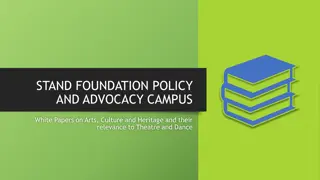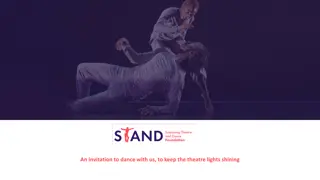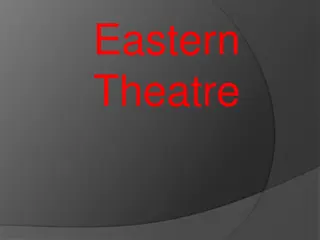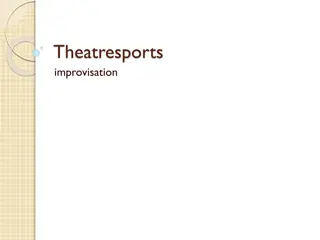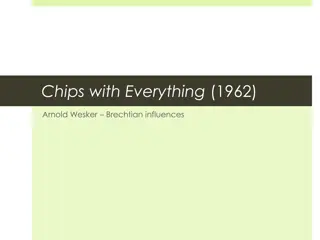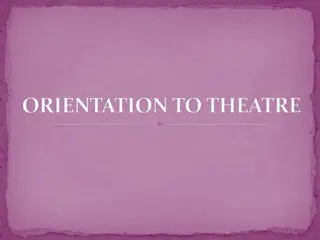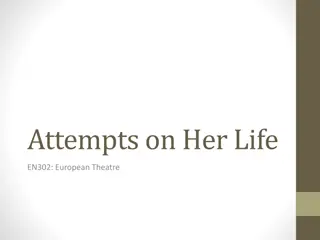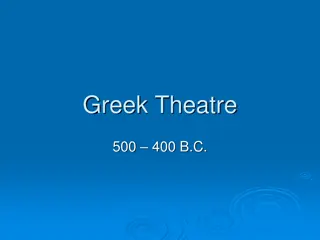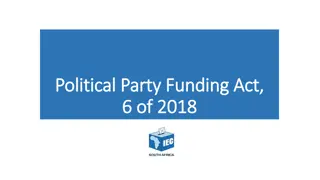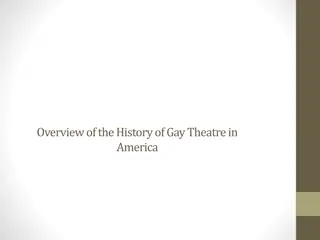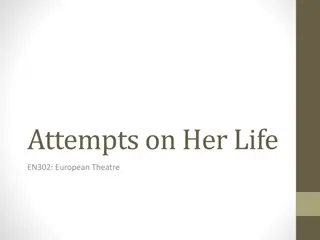Evolution of Theatre in South Africa: A Political and Cultural Journey
The historical development of theatre in South Africa reflects the country's tumultuous political landscape and societal divisions. From the imposition of apartheid laws in the 1940s to the resistance and creativity of marginalized artists in the face of oppression, the evolution of theatre demonstrates a complex interplay of race, culture, and activism. The struggle for inclusive and diverse theatre spaces continues to shape the performing arts scene in South Africa.
Download Presentation

Please find below an Image/Link to download the presentation.
The content on the website is provided AS IS for your information and personal use only. It may not be sold, licensed, or shared on other websites without obtaining consent from the author.If you encounter any issues during the download, it is possible that the publisher has removed the file from their server.
You are allowed to download the files provided on this website for personal or commercial use, subject to the condition that they are used lawfully. All files are the property of their respective owners.
The content on the website is provided AS IS for your information and personal use only. It may not be sold, licensed, or shared on other websites without obtaining consent from the author.
E N D
Presentation Transcript
Politically: Between 1949 and 1953 the major apartheid acts were passed in parliament. -English speaking White South Africans continued to look to Europe and America for leadership in the arts. Theatre was middle class, conservative and followed a tradition of legitimate theatre. It remained distant from issues relevant to all South Africans.
-written and performed by Afrikaans speaking White South Africans - representative of the Afrikaans people of South Africa - indigenous to South Africa - White theatre organisations were government subsidised
-During the 40s and 50s there was a continuing interest in theatre and performance amongst the oppressed classes -Black Africans held the traditional preference for verbal expression linked to music, dance and dramatic action -syndicate of African artists was formed in the mid 1940 s -government refused to grant any financial support as long as the syndicate insisted on performing to multi-racial audiences
-Due to police harassment they were forced to disband in 1956. -This syndicate eventually became Union Artists. -Their musical production of King Kong played to multi-racial audiences -Most theatres at this time did not admit Black people and this continued into the 1980 s
Politically: 1960 Sharpville 1976 The Soweto riots -Theatre remained segregated according to race, language and culture until the 1980 s -Whilst there was a number of white directed productions with black casts for white audiences, there were still no theatres within the townships. - Athol Fugard challenged the status quo by creating, with Black intellectuals , founding a new theatre, The Rehearsal Room
-1963-start of the Playwrights boycott and the Performing Arts Councils were formed. (Napac, Pact etc.) -Rights to plays from Europe and America, English playwrights were limited. Forced to create new works. - non-subsidised theatres were created e.g. The Space Theatre and The Market Theatre - audiences were multi-racial and this often led to problems with the security police.
-In terms of Afrikaans theatre the 60s and 70s were termed The Golden age . -young actors and writers working for a well- funded state theatre -ended with the arrival of television and the Soweto riots - Urbanisation- greater spending power- led to growth of drama in the townships - township plays of this time focused on township reality
GIBSON KENTE Most popular during the 60 s and 70 s He focussed on narrative, mime, movement, vocal dynamics, music and dance which were found in oral performance MBONGENI NGEMA - was strongly influenced by Kente -musical successes with productions such as Sarafina and Magic at 4am in the 1980 s - -
Growing mood of resistance, increase in oppressed class involvement in theatre Theatre of this time aimed to create a sense of unity amongst Black people, to help them identify with their cause Theme of resistance emerged strongly Increase in indigenous theatre but indifference from government and commercial theater Political expression was met with censorship and banning - - - - -
1976 broadcast television started- had huge impact on theatre and cinema 1977 government lifted the ban on multi-racial theatre companies and abolished segregation in theatre 1980 saw the creation of Simon Ngema and Percy Mtwa of Woza Albert Dynamic and physical theatre style influenced by Grotowski- captured expression of poverty and oppression Pieter Dirk Uys was a popular satirist during this time. He challenged the state policies using humour. Generally his shows were not scripted, which made it difficult for the security police to close them down - - - - -
Workshop Theatre Protest Theatre Workers Theatre Community Theatre Educational Theatre Satirical Revue 1. 2. 3. 4. 5. 6.
